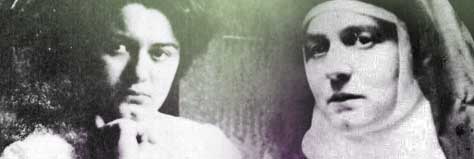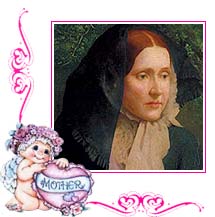The following is a homily delivered by Fr. Emmanuel Charles McCarthy on November 9, 2015
Roger LaPorte: November 9,1965,
A Symbol of War’s Flotsam for Whom There is No National or Religious Memorial Day or War Victims Day
Roger LaPorte is long dead, long gone and long forgotten. His name is not to be found on any wall of remembrance in Washington, DC. There is no state monument remembering the Lethally Wounded Non-Warriors of War. Nor, have I ever seen in any U.S. Catholic Church the slightest memento that would call to mind the non-warrior victims of U.S. wars—for the purpose of praying for them and their killers. Yet, the overwhelming majority of victims of war are not warriors but rather are non-warriors. Do not they deserve recognition and prayers and help as much as dead warriors or wounded warrior. Roger LaPorte is just another one of the lost-to-recorded-history of billions of non-warrior victims of war.
Roger, a Catholic Christian, immolated himself on November 9, 1965, fifty years ago today, at the United Nations in New York City in order to bring to light and to protest the savagery of the evil that the U.S. economic, political and military elites had been and were pouring down on the Vietnamese people for years with hardly a peep from anyone in the U.S.—including the Bishops of the Catholic Church. It was a last resort, desperate act, of a young man who was trying to love his brothers and sisters in Vietnam and in the U.S. by laying down his life for them.
What brought him to the point, where he perceived that this is what he wanted to, should do, must do, will forever be unknown in this world. The moral quality of his act before God will also be forever unknown in this world. Did he intend to do God’s will as revealed by Jesus? Was he following his conscience? Was he making his choice in a state of non-culpable ignorance? From whence did he derive the idea that he could be doing God’s will by killing himself to try to save the earthly life of others? Was it from a logical extension of the Catholic moral theory justifies homicide, that is, if a person could kill another to try to save an earthly life, why could not a person kill him or herself to try to save an earthly life? Why is killing another human being to save a life a morally neutral or good act and killing oneself to save a life an intrinsically morally grave evil act? If taking another life to save the life of an innocent person is a good act in conformity with Jesus’ teaching, “No greater love has a person than to lay down his life for his friends,” then why doesn’t the same apply for taking one’s own life to save innocent people? Isn’t this exactly what is being done when a soldier intentionally falls on a hand grenade to save his buddies’ lives? The moral difference between that soldier and Roger LaPorte is what? And, who is responsible for placing into Roger’s mind the idea that any kind of homicidal violence for any purpose can be morally squared with Jesus’ teachings in the Gospels on violence and on the meaning and way of salvific divine love, Christlike agape?
Finally, when asking the question, “What brought Roger to the point, where he perceived that this is what he wanted to do, should do, must do,” an event that was spiritually glamourize in a significant part of the peace movement, including the Christian peace movement, at that time is more than likely a piece of the puzzle of what moved Roger to immolate himself. On June 11, 1963, a Vietnamese Buddhist monk, Thich Quang Duc, immolated himself at a Saigon intersection as a way of protesting the intolerable persecution of Buddhists in South Vietnam by its Catholic President and U.S surrogate, Ngo Dinh Diem. With specific reference to that Buddhist’s witness, an 82 year old Jewish pacifist in Detroit on March 16, 1965, Alice Herz, and a 31 year old Quaker in Washington, DC, on November 2, 1965, Norman Morrison, followed the Buddhist monk in his choice of self-immolation as a way to try to help the people of Vietnam who for years were daily being torn to pieces by high tech and low tech U.S. Military killing gadgets and personnel. Morrison, even took his one year old daughter, Emily, with him to a place outside the Pentagon about forty feet from the window of the office of the Secretary of “Defense,” Robert McNamara, handed his daughter to someone, then doused himself with kerosene, burning himself to death. His wife said that the reason he brought his daughter with him was “[S]he was a powerful symbol of the children we were killing with our bombs and napalm–who didn’t have parents to hold them in their arms.” Seven days later on November 9, 1965, Roger LaPorte burned himself to death in front of the Dag Hammarskjold Library at the United Nations. He lived for a short while after and in a state of complete lucidity made what the Catholic priest who administered the Sacrament of Reconciliation to him said was “a perfect confession.” In the only public communication he left explaining his action he said, “I did this as a religious act.” There can be little doubt that this serious, informed and empathic twenty-two year old Catholic young man in 1965—when the overwhelming majority of his fellow Catholics, laity, clergy and hierarchy were in support of the war in Vietnam or just indifferent to the slaughter of Vietnamese men, women and children that was taking place under the auspices of the U.S. military, and when the most prominent and powerful Cardinal in the U.S. was aping Stephen Decatur’s words of nationalistic jingoism, “My country right or wrong,” as justification for Catholics slaughtering by the car loads Vietnamese people, 7000 miles away—found meaning, and hence some of his motivation, in the examples of the prior acts of self immolation mentioned above.
Yet, the post-mortem histories of the aforementioned four who immolated themselves to help the people of Vietnam are quite different. Thich Quang Duc, is revered by Vietnamese Buddhists as a bodhisattva (saint), the intersection where he set himself afire has a monument and park dedicated to him and his intact heart is preserved as a relic of the spirit of compassion in a glass chalice. Alice Herz, who was also a refugee from Nazi Germany, has a plaza named after her in Berlin. Shingo Shibata, the Japanese philosopher, established the Alice Herz Peace Fund in her memory. Norman Morrison has a road named after him in the Vietnamese city of Da Nang. In Hanoi a street is named after him and the Government of Vietnam has issued a postage stamp in his honor. An HBO film about him has been made and poems and books have been written about him. Roger LaPorte’s charred dry bones lay in the ground of section 1, row 11 of Saint Alphonsus Cemetery in Tupper Lake, NY. —long dead, long gone and long forgotten.
And so it should be, for such is the case for just about all of the non-warrior victims of war. By political and ecclesial necessity and arrangement the warriors, dead or alive, are fawned over, but the billions of non-warriors they maimed and destroyed must be kept out of sight, out of mind and out of memory, lest they reveal the immensity of the evil the honored warriors and their honorable puppet masters, have done to fellow human beings, who did them no harm and who intended to do nothing harmful to them. In other words the non-warrior victims of the warrior heroes must be expunged from history, must become as if they never existed, or if they existed were of no worth. The victorious warriors and their controllers, who carefully manage the memory of the past, so as to assure that in the future the young will experience being used as violent and lethal warriors as nobly heroic, must drown them in the vastness of time. The non-warrior victims of the honored and obedient warriors and their sting-pullers are, on the other hand, consigned to historical oblivion as unworthy of being remembered, as they were unworthy to continue life. To such a community of the dead has Roger Laporte been consigned—“unwept, unhonored and unsung.”
So on this the fiftieth anniversary of Roger’s death as a non-warrior victim of war, let us pray. “May his memory be eternal*.”
-Emmanuel Charles McCarthy AD November 9, 2015
*This is an ancient Christian prayer. It is derived in part from the awareness that temporal memory, regardless of how hard any human being works to make it otherwise, is a totally perishable phenomenon among totally perishable beings in a totally perishable universe. To be remembered eternally can only happen if the Eternal One, God, remembers one. This prayer for Christians is rooted in the plea of the criminal on the cross beside Jesus, “Jesus, remember me when you come into your kingdom,” and in Jesus’ response, “Truly I say to you, this day you shall be with me in Paradise.” In other words to be remember by God—and Jesus for the Christian is God Incarnate—is the same thing as to be in Paradise. To be in Paradise is to be in the Eternal Memory of God and consequently to have Eternal Existence and be granted Eternal Beatitude. Without being remembered by God, we and the memory of us perish forever, regardless of the most strenuous efforts to insure otherwise.
So again, let us pray on this the fiftieth anniversary of Roger’s death as a non-warrior victim of war for him and for all the non-warrior victims of war: “May their memory be eternal.”

